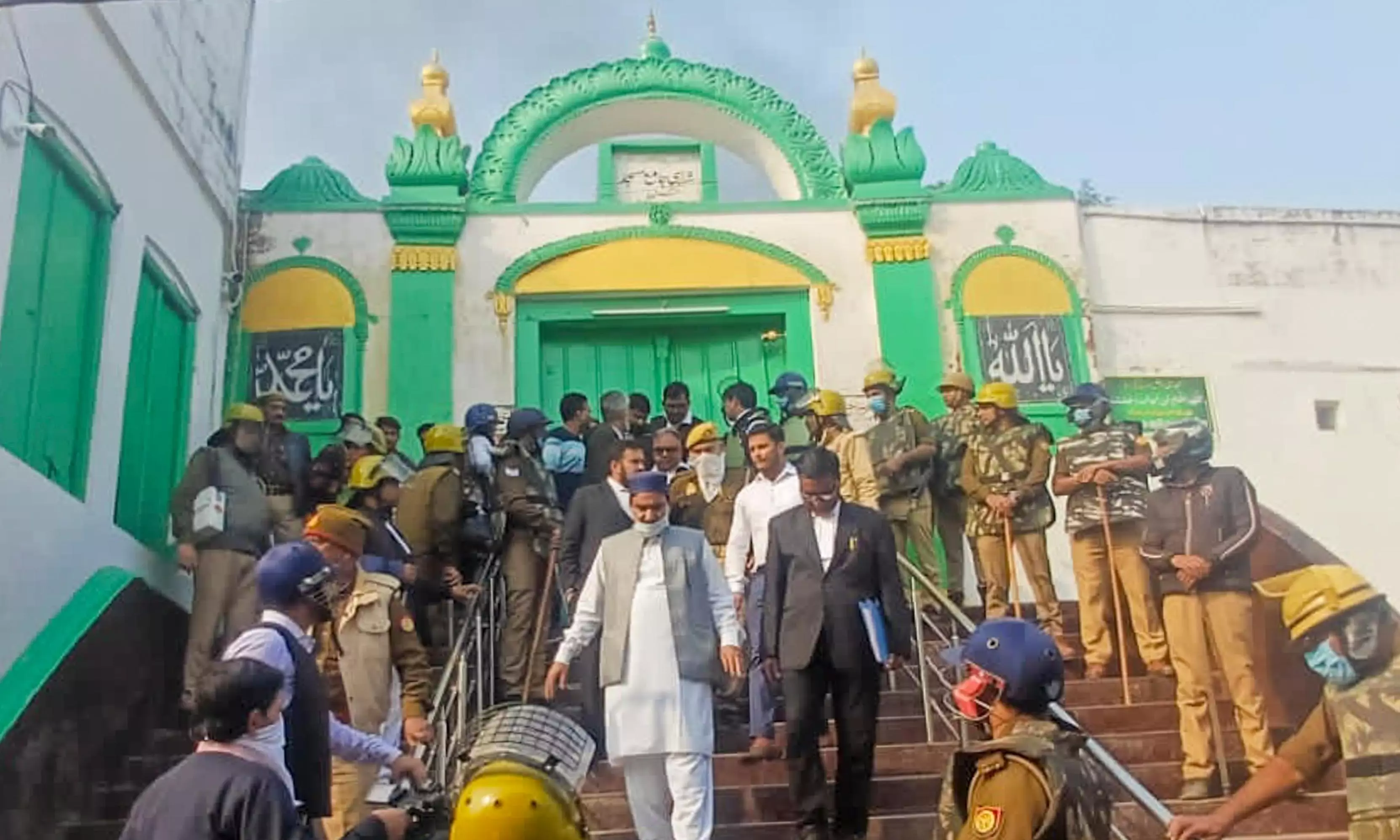
'Unhealthy trend': Chelameswar slams SC's 'flip' on Places of Worship Act
Far-reaching national issues need to be heard not by a 2-member bench but by a full-bodied Constitutional bench, as was the practice earlier, says former SC judge

Former Supreme Court judge Jasti Chelameswar has slammed the Supreme Court's turnaround on the Places of Worship Act.
"The Supreme Court has the right to overturn any decision or judgment, but clear-cut reasoning and explanation for the reversal of the decision needs to be provided," he told The Federal.
Justice Chelameswar was referring to the apex court’s volte-face on the Places of Worship (Special Provisions) Act 1991, which prohibits the change of character of religious places as they existed on August 15, 1947.
Former Supreme Court judge Jasti Chelameswar
According to Chelameswar, such far-reaching national issues need to be heard by a full-bodied, wide-ranging Constitutional bench, as was the practice earlier. "Unfortunately, this tendency to pronounce verdicts on such matters of national importance by two-member judges is an unhealthy trend and must be avoided at all costs,” he said, adding, "Let a larger bench examine an issue of such far-reaching importance."
Also read: Digging up the past to bury the future
Oral observations
On May 20, 2022, the top court made oral observations while hearing a dispute involving the Gyanvyapi mosque in Varanasi and said ascertaining the religious character of a place of worship was not barred under the Places of Worship Act. In July 2023, it adjourned a case on the validity of the Act, giving the Centre until October 31, 2023 to clarify its position. The court also directed the Union government to file its reply to a batch of petitions challenging the Act's constitutionality.
Taking a leaf out of the supposed change in the Supreme Court’s stand, courts in various parts of the country have been asking for a review of mosques and other places of religious worship.
Last week, two Congress petitioners asked the apex court to issue directions to the states to comply with the provisions of the Place of Worship (Special Provisions) Act, 1991. They also asked the states not to execute any order of courts directing them to carry out surveys of religious structures or mosques in contravention of the 1991 Act.
Also read: Jamiat raises concern over Centre’s ‘active participation’ in Ram Temple events
Sambhal incident
Recently, four people died following a violent protest against a court-ordered survey of the Mughal-era Shahi Jama Masjid in Uttar Pradesh's Sambhal district. The petitioners, who moved the court, had alleged that the 16th-century mosque was built at the site of an ancient Hari Har Mandir, which was purportedly demolished by Mughal ruler Babur in 1529.
In Ajmer, home to Sufi saint Khwaja Moinuddin Chishti's dargah, which is visited by thousands cutting across religious divides every day, a local court has issued notices to the dargah committee, the Ministry of Minority Affairs and the Archaeological Survey of India on a plea seeking to declare the shrine a temple.
Also read | ‘Ideological assault’: Ex-bureaucrats write to PM opposing Ajmer Dargah survey
Asked if the apex court was not immune to the national mood of the day, Justice Chelameswar avoided a direct comment, but said: "In 1967, the Golaknath case was hailed as a milestone because the spirit in the country was socialistic, but the situation had changed when another landmark judgment, the Kesavananda Bharati case, was delivered.”
Need for time
He, however, added that the Places of Worship Act is the law of the land, and more time is needed to see how this issue shapes up.
The main difference between the Golaknath case (1967) and the Kesavananda Bharati case (1973) is that the Golaknath case ruled that Parliament could not amend fundamental rights, while the Kesavananda Bharati case ruled that Parliament could amend the Constitution but not its basic structure.
The Congress government introduced the 1991 Act under Prime Minister PV Narasimha Rao amid the turmoil that followed the demolition of the Babri Masjid in Ayodhya in 1992.
In November 2019, the Supreme Court's Ayodhya judgment upheld the Act, stating that it protects the fundamental values of the Constitution. It also said the Act preserves the religious character of places of worship as they were on August 15, 1947.
On Chandrachud meeting Modi
Asked whether former CJI DY Chandrachud was right in being seen offering prayers with Prime Minister Narendra Modi, virtually an unprecedented act in post-Independence history, Justice Chelameswar said: "What the CJI did in the privacy of his house, including offering prayers with whom he wishes to invite, was not wrong, but to make these images public...certainly it's not done.”
Jasti Chelameswar retired in June 2018 as the second-most senior judge in the Supreme Court. He previously served as the Chief Justice of the Kerala High Court from 2010 to 2011 and the Gauhati High Court from 2007 to 2010.

